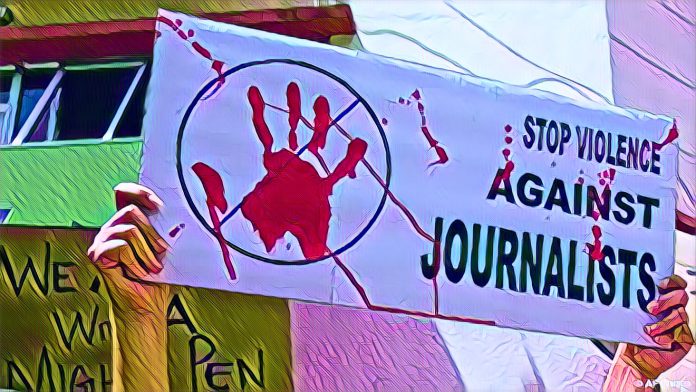According to a report by The Sun, the Federal High Court in Abuja has mandated the federal government to undertake a comprehensive investigation into the attacks on journalists, with instructions to prosecute and penalize the culprits responsible for such acts. This decision, handed down on February 19, 2024, represents a significant stride towards ensuring the safety and security of media personnel in Nigeria.
The case, initiated by Media Rights Agenda (MRA) against the federal government, represented by the Attorney-General of the Federation, saw Justice Inyang Ekwo affirming the plaintiff’s argument. MRA contended that the government’s failure to protect journalists and media practitioners from assaults, as stipulated by Principle 20 of the Declaration of Principles on Freedom of Expression and Access to Information in Africa, constituted a violation of both the Declaration and the African Charter on Human and Peoples’ Rights (Ratification and Enforcement) Act.
Justice Ekwo’s judgment articulated a clear liability on the part of the federal government for the actions of law enforcement, security, intelligence, military, and other officials or agents whose conduct infringes upon the rights and safety of journalists and media practitioners. This ruling follows a lawsuit filed by Abuja-based human rights lawyer, Mrs. Mojirayo Ogunlana-Nkanga, on MRA’s behalf in October 2021, which highlighted the longstanding issue of violence against journalists in Nigeria, including murders and other forms of attack over the past decades.
The suit brought to light the tragic fates of several journalists, including the renowned Editor-in-Chief of Newswatch magazine, Mr. Dele Giwa, who was assassinated in 1986, and others like Ms. Bolade Fasasi, Mr. Edward Olalekan Ayo-Ojo, Mr. Omololu Falobi, Mr. Godwin Agbroko, Mr. Abayomi Ogundeji, and Mr. Edo Sule-Ugbagwu, who were all brutally murdered under circumstances related to their journalistic duties.
In delivering his judgment, Justice Ekwo emphasized the paramount importance of journalist protection, noting their critical function in society. He recognized the murders as violations of the fundamental right to life, enshrined in both the 1999 Constitution of Nigeria and the African Charter. Furthermore, he declared that these killings, while the journalists were engaged in their professional duties, infringed upon their right to freedom of expression and the press.
Justice Ekwo condemned the government’s negligence in fulfilling its obligations to ensure the safety of journalists, highlighting its failure to prevent attacks, effectively investigate incidents, prosecute perpetrators, and provide remedies to victims. The judge’s orders compel the federal government to adopt preventive measures against future attacks on journalists, ensure thorough investigations and prosecutions of past and future cases, and facilitate access to effective remedies for victims.
Additionally, the ruling mandates the government to enhance awareness and improve the capacities of various stakeholders, including journalists, policymakers, law enforcement, and military officials, on laws and standards that guarantee the safety of journalists and media practitioners.
This decision arrives at a critical juncture for press freedom in Nigeria, signaling a potential turning point in the protection of journalists and the media’s ability to operate without fear of reprisal. It serves as a reminder of the government’s duty to uphold and protect the freedoms enshrined in the constitution and international charters, ensuring that journalists can continue their essential work of informing the public and holding powers to account.
By addressing the systemic issues that have allowed violence against journalists to persist, the ruling not only seeks justice for those who have been silenced but also aims to fortify the foundations of democracy in Nigeria. The federal government’s compliance with this ruling will be closely watched by both national and international observers, as it represents a measure of Nigeria’s commitment to the principles of freedom of expression and the safety of its guardians of truth.



